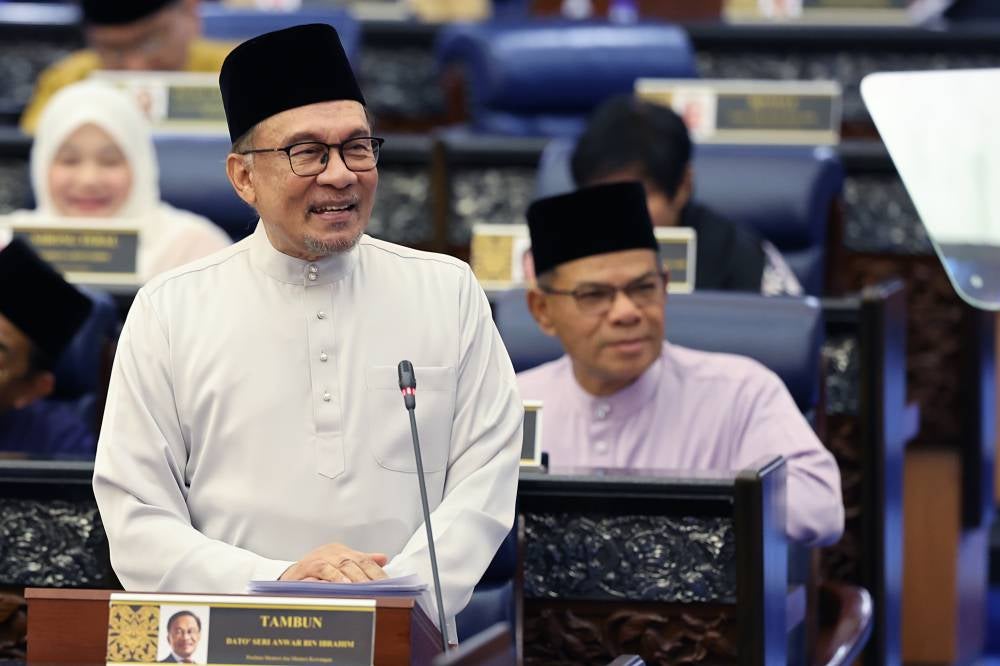Budget 2025 focuses on women and their greater participation in the workforce
To further support women's involvement in the workforce, he said the Women’s Leadership Apprenticeship Programme (Perantis) will be expanded under the Women’s Affairs Ministry, with the aim of producing more female corporate leaders.

SHAH ALAM - While Budget 2025 did not present many new initiatives specifically for women, a few key programmes and incentives have been highlighted to encourage greater participation and leadership roles for women, particularly in the corporate and financial sectors.
Finance Minister Datuk Seri Anwar Ibrahim announced that the average percentage of women holding board positions in the top 100 companies listed on Bursa Malaysia has reached 32.2 per cent as of Oct 10.
“Although we have achieved the target of 30 per cent women’s participation, 39 companies have yet to meet this goal on their boards. The government urges all companies to meet this target by the end of 2027,” he said when tabling the budget today,
To further support women's involvement in the workforce, he said the Women’s Leadership Apprenticeship Programme (Perantis) will be expanded under the Women’s Affairs Ministry, with the aim of producing more female corporate leaders.
Anwar also announced the introduction of the Returnship Programme, which will be piloted to encourage women to return to work, particularly in the financial sector.
“This programme, organised by Bank Negara Malaysia (BNM) and Securities Commision (SC), will offer training and connect participants with potential employers to facilitate their return to work,” he said.
Anwar said the government will also offer employers an additional 50 per cent tax deduction for 12 months' wages paid to women rejoining the workforce.
“A total of RM470 million in funding has been made available by SME Bank, BSN, Bank Rakyat, and Majlis Amanah Rakyat (Mara) to support women-owned SMEs in obtaining working capital, purchasing assets and expanding business capacity to higher levels,” he said.
As of Oct 10 last year, women hold an average of 32.2 per cent of board positions in the top 100 companies listed on Bursa Malaysia. This meets the government’s target of 30 per cent women’s participation.
However, 39 companies have yet to meet this goal, prompting calls for compliance by the end of 2027. In a broader context, as of June 1, 2023, approximately 22 per cent of directors across all public-listed companies on Bursa Malaysia were women.
Despite this progress, 24 public-listed companies still have not appointed any female directors, which underscores the challenges remaining in achieving gender diversity in corporate governance.

Meanwhile on social protection, Anwar said the government continues its efforts to bolster savings for retirement and insurance coverage.
“To encourage more informal workers and those without fixed income to save for retirement, the i-Saraan matching incentive by Employees Provident Fund will be increased to 20 per cent from 15 per cent, subject to a maximum annual matching incentive of RM500 or RM5,000 in a lifetime.
“The i-Suri Programme will continue with a matching incentive scheme through government contributions and active contributions from participants," he said.
The initiatives mentioned, while important, appear to offer only a few targeted efforts specifically focused on women. Beyond the three key initiatives addressing workforce re-entry, leadership involvement, and social protection, there seems to be a lack of broader, more comprehensive programmes aimed at empowering women across various sectors.
This suggests that while some progress has been made, there is still significant room for expanding efforts to more holistically support women’s economic and social advancement in Malaysia.














